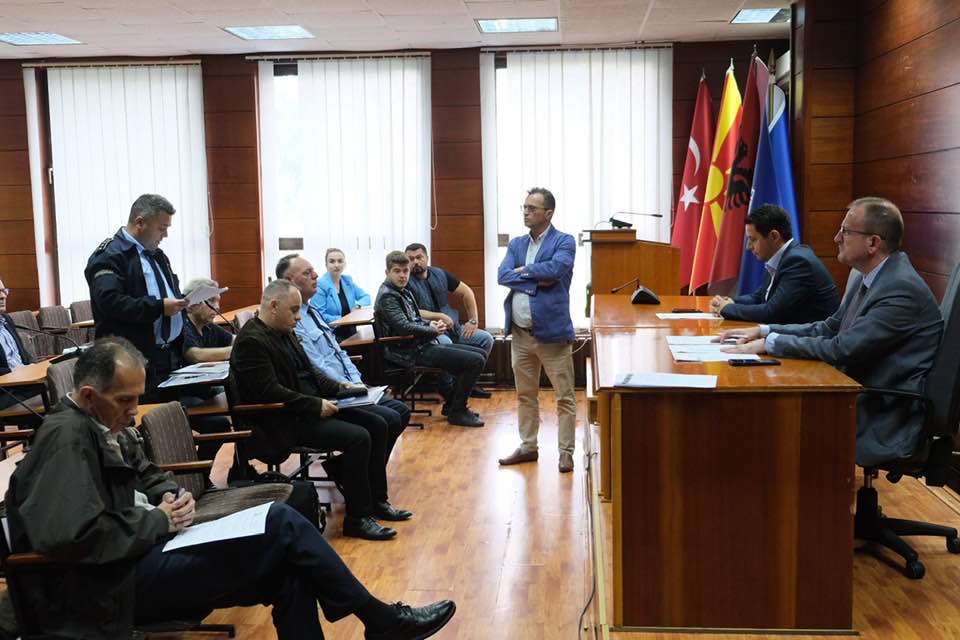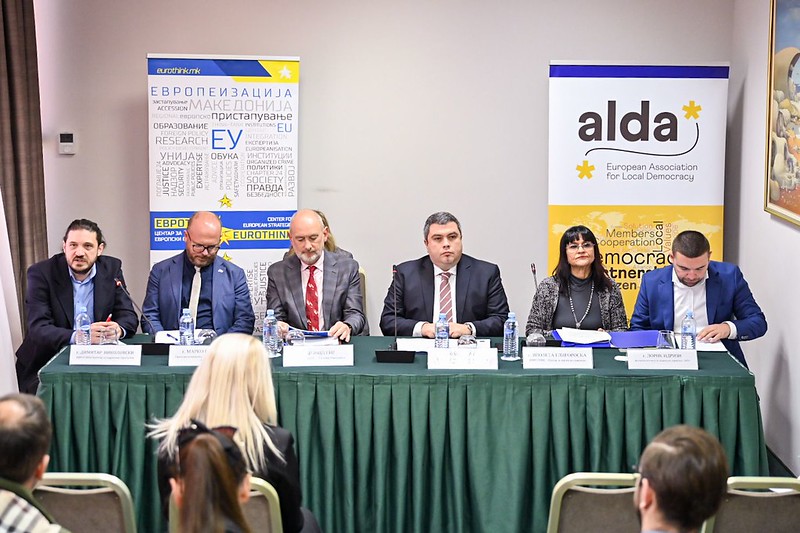

Стратегиите за поттикнување на младите во Македонија само на хартија
Европската унија носи стратегии и дава поддршка во креирањето политики за млади лица, Македонија доцни со имплеметацијата и со обидот…


Европската унија носи стратегии и дава поддршка во креирањето политики за млади лица, Македонија доцни со имплеметацијата и со обидот…


Публикацијата „Перцепции и ставови на граѓаните на Република Северна Македонија за работата на полицијата во февруари 2024 година“ е во…


Евротинк – Центар за европски стратегии во рамките на проектот „Медиумите за ЕУ“ објавува повик за млади новинари – практиканти…


Евротинк во текот на месеците февруари и март 2024 година ќе спроведе серија тематски дискусии во осумте плански региони во…


Евротинк – Центар за европски стратегии во рамките на проектот „Медиумите за ЕУ“ објавува повик за новинари уредници кои би…


Во рамки на проектот „Подобрување на отчетноста и транспарентноста на полицијата во Република Северна Македонија“ Евротинк изработи инфо-пакет за граѓани…


Прирачникот за новинари ги содржи главните информации и знаења што новинарите треба да ги имаат со цел ефективно да известуваат…


Во рамки на подкастот на ALDA „Нијанси на демократијата“, директорот на Евротинк Димитар Николовски и претседателот на BIRC Џељаљ Незири,…


MK/ALB Тема на Школата: Евроинтегративните процеси низ призма на новата методологија Школата за европски политики е традиционална активност на Евротинк…


Këshillat Lokale për Parandalim (KLP) paraqesin mjet kryesor në zinxhirin e mekanizmave për menaxhimin efektiv të problemeve dhe sfidave lokale…













Проектот „Подобрување на отчетноста и на транспарентноста на полицијата во Република Северна Македонија“ цели кон: 1) подобрување на постојните практики…


Инфографикот е изработен во рамки на проектот „Подобрување на отчетноста и на транспарентноста на полицијата во Република Северна Македонија 2022-2024“….







Во рамките на проектот „Медиумите за ЕУ“ беше подготвен само-евалуациски прашалник наменет за медиумските професионалци со цел да се утврдат…










На 20, 21 и 27 јуни Евротинк одржа три тематски работилници за подобрување на транспаретноста и отчетноста во работата на…




На 16 јуни се одржа првата седница на Локален совет за превенција во општина Гостивар. На седницата се разговараше за…






+38923217511
eurothink@eurothink.mk
Petar Pop Arsov 16-5/2, Skopje

СОЦИЈАЛНИ МРЕЖИ